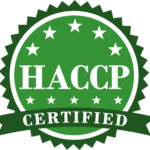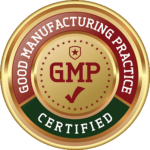HACCP certification is all about prevention, which we all know is worth a pound of cure.
It’s much better to avoid a hazard in the first place than to deal with its costly consequences after it’s too late. Would you rather drive defensively or get into a collision? Brush your teeth or get a cavity? Put up your hurricane shutters or get your windows shattered?
Life is filled with hazards all around us, and manufacturing facilities are no exception. Therefore, a responsible manufacturer takes all the necessary precautions to ensure the utmost safety and control over all aspects of the operation.
HACCP Blasts Off
Hazard Analysis and Critical Control Points (HACCP) was first developed in the 1960s during a collaboration between NASA, the U.S. Army Laboratories, and the Pillsbury Company. Pillsbury was tasked with manufacturing the first foods for space flight, and obviously this food had to meet the highest safety standards possible.
Inspired by NASA’s own strict engineering requirements, Critical Control Points (CCP), the partners applied similar principles to food processing, identifying and eliminating any “critical failure areas” in their procedures. This approach allowed them to successfully produce food safe for space expeditions.
Later development of this method ultimately led to HACCP becoming an internationally recognized standard for food safety to be applied during the manufacturing of food, ingredients, and beverages. HACCP is mandatory for certain types of food processers, such as meat, poultry, juice, and seafood. While it is not a requirement for kratom manufacturers, Elate Brands has chosen to adopt HACCP in our facility in order to go above and beyond all safety requirements.
HACCP Principles
HACCP incorporates seven principles which focus on identifying and preventing hazards that could lead to contamination or adverse events:
1. Conduct a hazard analysis: The purpose of the hazard analysis is to identify potential physical, chemical, and biological hazards associated with the manufacturing, packaging, and labeling process.
2. Identify critical control points (CCPs): A CCP is a point in the manufacturing process where a control measure can be applied to prevent or eliminate a hazard. For example, a CCP might be a step where the product is heated to a specific temperature to eliminate a biological hazard.
3. Establish critical limits: Critical limits are parameters that must be met to ensure the effectiveness of a control measure. For example, a critical limit for a heating process might be the minimum temperature required to eliminate a specific biological hazard.
4. Implement monitoring procedures: Monitoring procedures are used to ensure that CCPs are operating within the established critical limits. For example, monitoring procedures for a heating process might include temperature measurements taken at specific times during the heating process.
5. Establish corrective actions: Corrective actions are taken when monitoring procedures indicate that a CCP is not operating within the established critical limits. For example, if temperature measurements indicate that the heating process is not reaching the required temperature, corrective actions might include adjusting the heating equipment or reprocessing the product.
6. Establish verification procedures: Verification procedures are used to ensure the effectiveness of the HACCP plan. For example, verification procedures might include periodic testing of finished products to confirm that they meet established specifications.
7. Establish record-keeping and documentation procedures: Record-keeping and documentation procedures are used to ensure that the HACCP plan is being implemented effectively. For example, records might include temperature measurements taken during the heating process or test results from finished products.
Final Thoughts
If HACCP is good enough for NASA, then we’re certainly proud to use it ourselves here at Elate Brands.
We are HACCP certified through Society General Surveillance (SGS), an independent third-party organization that also provides our Good Manufacturing Practices (GMP) certifications. These credentials demonstrate our strong commitment to always go above and beyond in the name of quality and safety.






